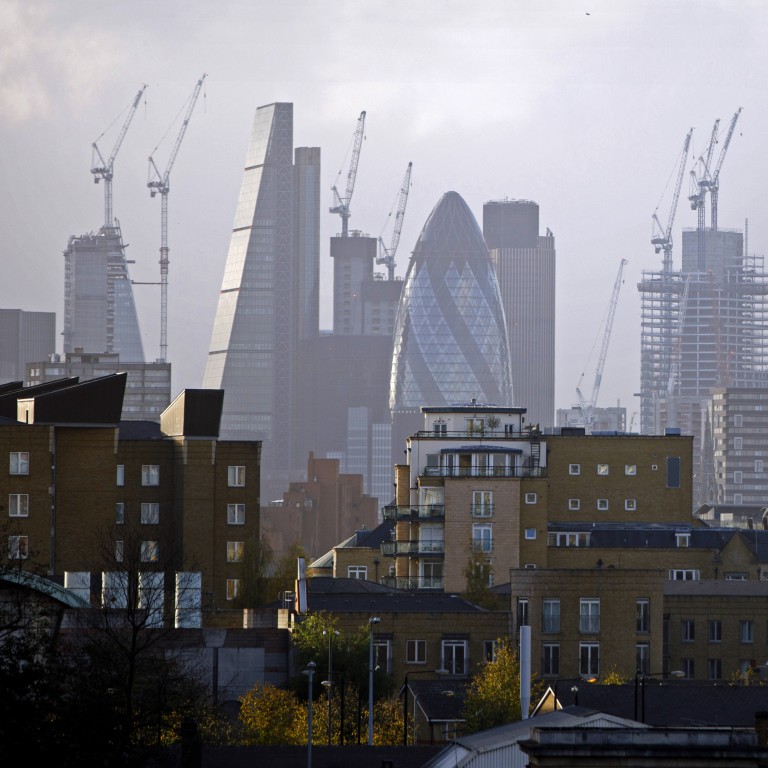
Hongkongers and Singaporeans lock horns over London properties, as more Lion City buyers eye real estate in UK
- More Singaporeans were looking to acquire property in London and this could be partially blamed for a 2.2 per cent increase in overall London home prices in February, Benham and Reeves executive says
- Given their cultural similarities, it is not unusual for Hongkongers and Singaporeans to compete for the same property
In central London, average prices rose by 2.1 per cent in the year to March, which was the strongest annual rate of growth since May 2015, according to property consultancy Knight Frank. The number of new prospective buyers in the district was also 84 per cent higher in the first quarter of this year than the five-year average.
Under London’s BN(O) scheme, which was launched in 2021, 3 million Hongkongers and their dependents are able to relocate to the UK and stay and work for extendable periods of 12 months, creating a path to citizenship.
Galliard sets up Hong Kong sales office as BN(O) migration rises
As of last year, 104,000 Hongkongers had applied to relocate to the UK under the programme, with 93 per cent of them winning an approval, according to government data. As many as 322,400 immigrants from Hong Kong are likely to purchase a home in the UK until 2026, according to estimates by the British government.
“There has certainly been an increase in demand from Singapore nationals and this has been building since the initial removal of stamp duty for foreign buyers. Many are coming to the market as cash buyers and this is enabling them to secure very good prices in what was already a muted London landscape,” von Grundherr said.
“Despite the swift removal of a stamp-duty reprieve for international buyers, interest from Singapore is yet to subside and we’ve seen a quarterly increase in enquiries of 40 per cent so far this year. Traditionally, we’ve seen a split of around 70 per cent to 30 per cent in favour of Hong Kong buyers, and with the additional draw of the BN(O) visa scheme, this gap had widened to around 85 per cent. That said, so far this year, it’s very much returned to the previous ballpark of 70 per cent,” von Grundherr added.
Given the cultural similarities between Hongkongers and Singaporeans, it is not unusual for them to compete for the same property. “Family homes suitable for children tend to be in high demand, while the other segment of interest is very much focused on investment opportunities,” von Grundherr said.
“As a result, we do tend to find both Hong Kong and Singapore buyers are interested in the same developments. Of course, the benefit of a development is we often have enough stock to satisfy all interested parties. That said, the highest demand tends to be for homes on the eighth floor or with the number eight, while the opposite can be said for the fourth floor and the number four,” he said.
London’s high rental yields are a draw for Hong Kong developers, says K&K
Other agents have also observed an increase in the number of Singaporeans looking for properties in London.
“We have seen a noticeable 40 per cent increase in enquiries from Singaporean buyers looking at Central London property. However, these have been more focused on the investment market rather than end-user homes,” said Jeremy Gee, managing director of Beauchamp Estates. “For example, Singaporean buyers have been looking at our many new homes schemes across prime Central London, whereas the Hong Kong and Chinese buyers tend to be looking in the super prime market in prime Central London for homes for end-use.”
Hong Kong and Chinese buyers typically make up 40 per cent of all property sales above £10 million, while Singapore buyers’ revival in London is relatively recent, he said.
Prime London homes tipped for more price upside, buoyed by Hong Kong buyers
One reason for Singaporeans’ interest in London homes is the education of their children, according to Andrew Weir, CEO of London Central Portfolio (LCP). The capital, which hosts top universities, received 26.8 per cent of all university applications from Hong Kong and 42.2 per cent from those in Singapore for the 2020-2021 academic year.
“We are currently acting on behalf of several overseas families relocating to London primarily to educate their children here. They intend to buy before the start of the academic year in September,” he said.
LCP ensures that its clients are never in direct competition with each other over the same property, Weir said. “They both like London for similar reasons. London residential property is still viewed long term as a safe-haven asset class,” he added.
Singapore’s property market set to escape Covid slump before regional peers


